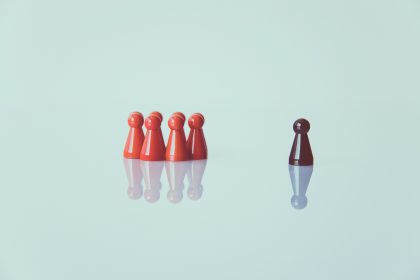It is often said that the world would be a better place if people gave more value to intangible things over goods. In fact, despite the previous statement, we should care more about our goods.
“Have you made that hand back by yourself?” A fellow student once asked me while mingling on the hallway in between of classes. I was stunned and confused. On my shoulder hung COS’s folded leather bag – a modern classic. How could anyone imagine that I would have managed to do one myself?
As I looked more closely at my bag, I understood the questioner better. The whole essence of the bag looked, quite frankly, affected. Its black leather had gray spots in various places, the strap had been stretched out too long, and the design resembling caramel paper did not even look as sharp as in the product images. Disappointment took over my mind. I had considered buying the bag for a long time, saved for it, and thought it would be living with me eternally.
What had really happened to my bag? Of course, I had used the bag diligently over the years, but it should last. However, it is a leather product that we are talking about – and made by a well-known design company! At first, my accusing finger pointed in the direction of COS. I thought a bag that costs a couple hundred euros should be of better quality. However, I soon began to reflect on my own actions as well.
Had I protected the bag with a protective product before use? No. And what about treating the leather with leather care products over the years? No. Why not? No one had told me it was necessary to do so, and I was too lazy to make the research and find out myself.
We need more durable stuff
One of the first things I learned at university was that consuming goods consists of three stages: acquisition, use, and decommissioning. Pretty soon I also learned that we perform these steps too often and too fast for the planet’s limited resources.
The contradiction between current consumption habits and sustainability has been resolved, for example, in the circular economy. In a circular economy, the use of new materials is reduced, reused, and recycled.
From the point of view of consumption, this means in practice that goods are distributed, rented, and recycled more than before. In addition, the usage phase of purchased goods should take considerably longer. All this requires a long life for the goods.
Value the materials
But who is responsible for ensuring the sustainability of goods? Businesses, individual consumers, or politicians?
It is clear, the role of companies and politicians is significant. The circular economy is facing a meltdown if companies bring products to market that are meant to break down. And the fact that buying a new one is often cheaper or even the only option to repair the old one, does not make the situation any easier.
However, some of the responsibility also lies with us, consumers.
Clearly, we need goods to live a good life. Even when that is the case, we should be able to choose the goods we buy more carefully, find out about their materials and how to take care of the materials, and remember and be able to service them accordingly. This takes time and patience from us. In addition, materialistic thoughts – that we give our goods the value they deserve.
Appreciating matter and attachment to goods has been seen as problematic, as it increases consumption and prevents people from getting rid of unnecessary goods. I still argue that affection is also needed. If the goods are indifferent and easily replaceable, why would we take care of it?
Emilia Laukkarinen





